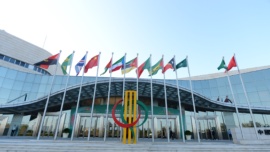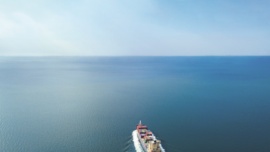The development of Hengqin Island is bound to be both an opportunity and a threat for Macau. The plan is clearly ambitious. Even if it is only partially fulfilled, it will move the centre of gravity of Zhuhai westwards and re-direct the physical and economic flows between the two cities. Whatever path our future development follows, by design or accident, is inevitably bound to theirs. In itself, that is not bad; it is the natural way of things. Hengqin has become, de facto, an unavoidable factor in the Macau equation of development.
What we get from it and how we get there, however, are not irrelevant matters. That only makes more glaring the unavailability of a clear understanding of the role Hengqin – and by extension Zhuhai – can play, or how we would like them to fit into the plans, objectives, and needs of the Macau community. Hengqin can also become the competitor that will progressively void Macau of most of its economic functions. But these are issues we seldom see openly discussed.
The development of Macau is first of all constrained by its geographical limits. The two possible approaches to deal with such limitation are land reclamation, which seems to be reaching its limits, or land cessions, which the present development of Hengqin removed from the list of options.
That sets more stringent bounds to our range of choices, without any obvious ways around them. Such limitation is compounded by the apparent helplessness of the local polity to generate a shared vision about the feasible, let alone desirable, future for this community, and to identify alternative paths to achieving the social and economic objectives implied by that vision.
Without an operational blueprint on this side, and the necessary actions and tools to back it, Hengqin will become progressively everything Macau always wanted to be and never was able to make happen. Exhibitions and other big events; hotels across the full range of categories to cater to a varied customer base; luxury condos and residences for the common citizens; shopping and entertainment facilities; transportation networks and leisure amenities you name it, they will have it.
That diversification can be backed by a cheaper, more adaptable and renewable labour force, and more flexible land arrangements.
What will Macau then become besides being the neighbourhood where one can gamble freely? Possibly a financial haven, until the evolution of Mainland capital markets makes it obsolete. Procrastination is not without cost.
























